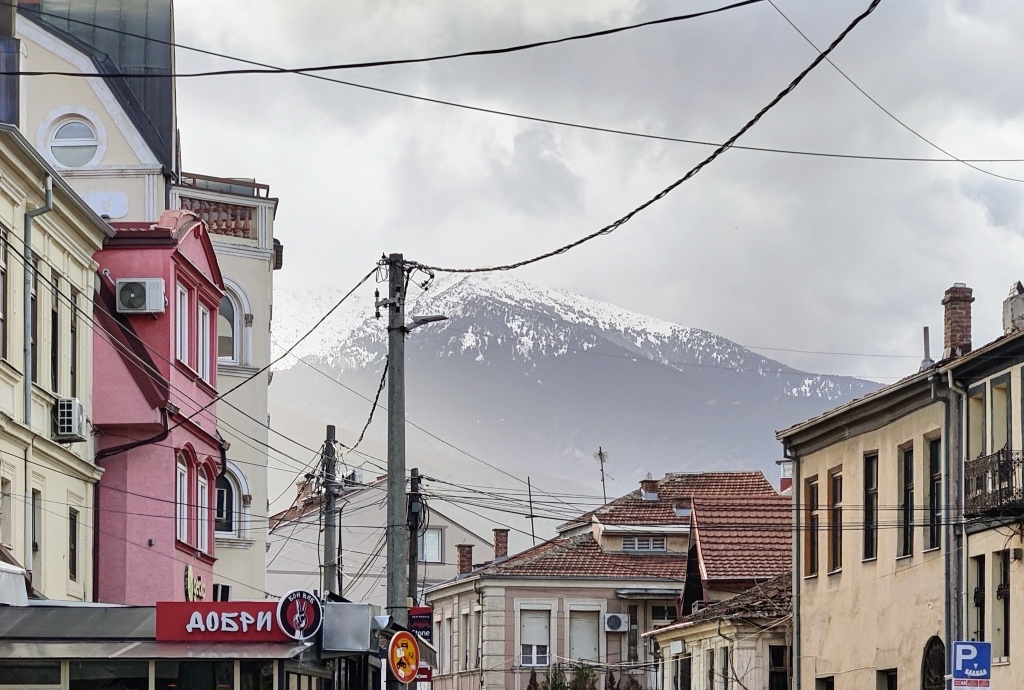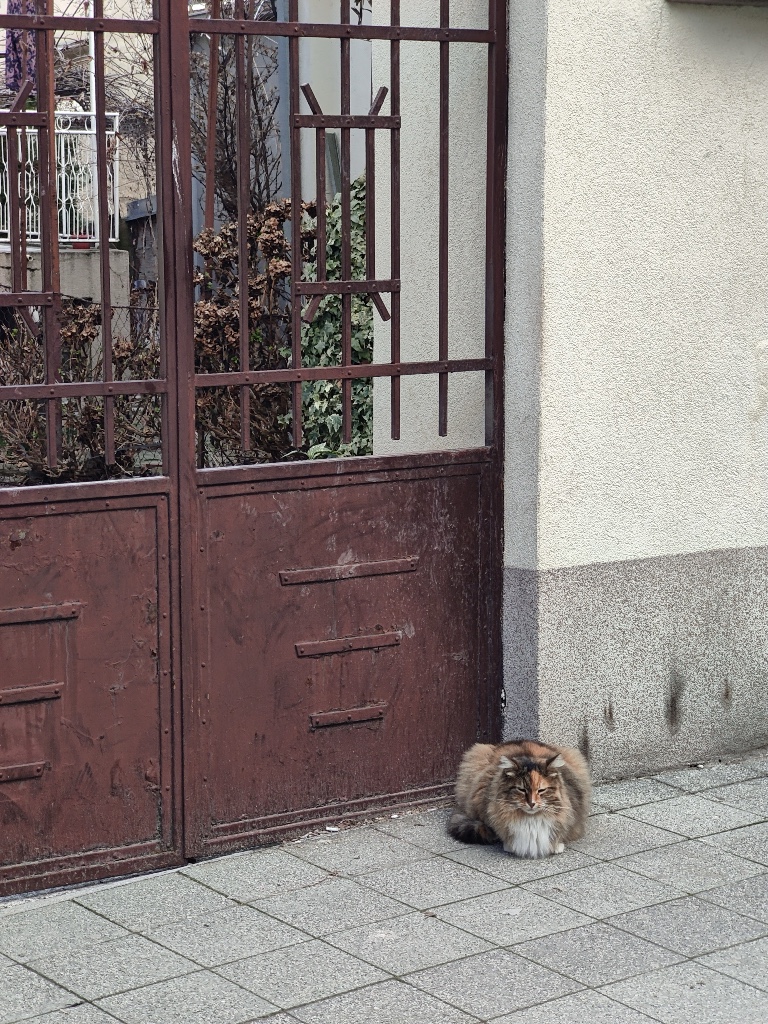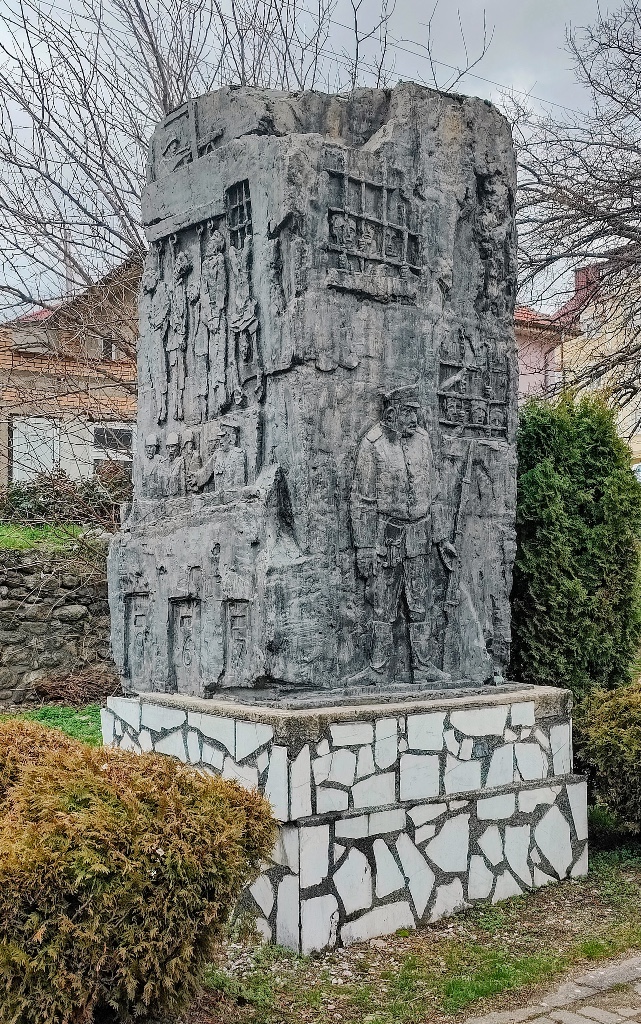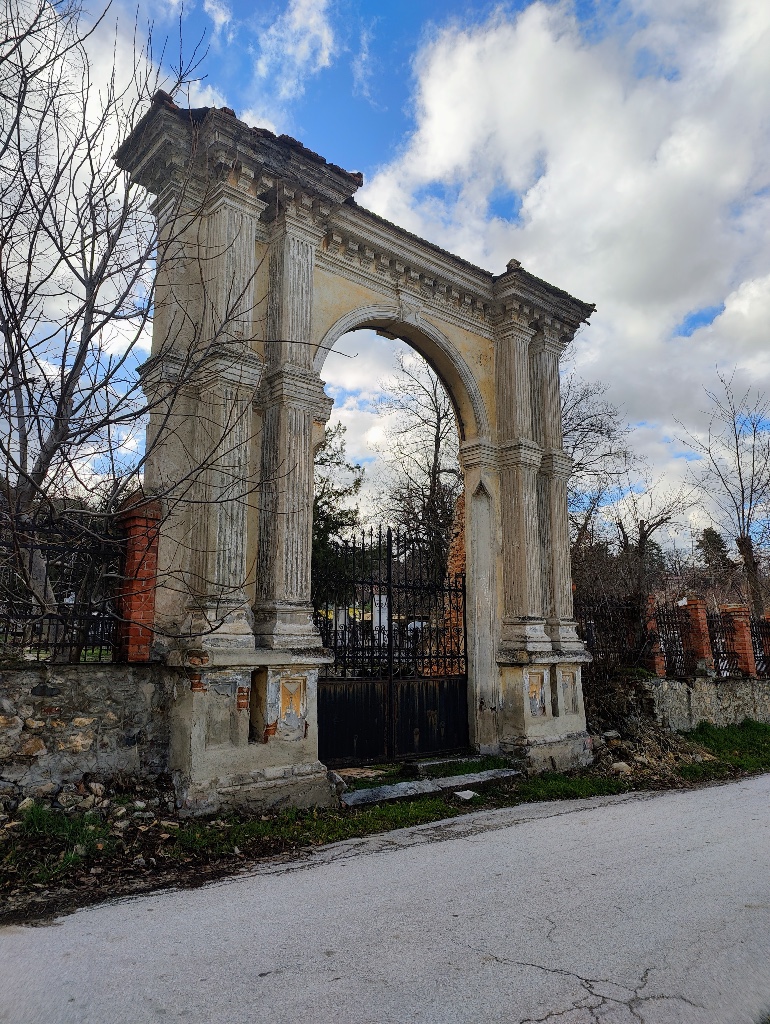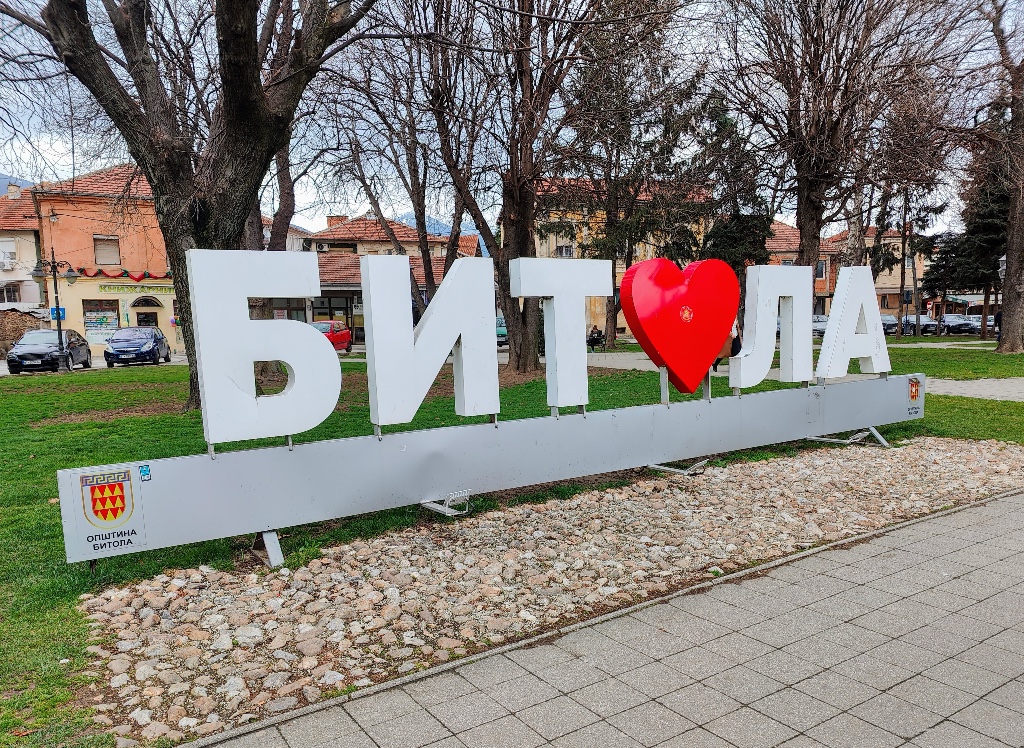
It was time to leave Greece to reset our time in the Schengen area, so we opted to go next door to North Macedonia. We are starting our stay in Bitola, a southwestern city just north of Florina, Greece. Known as the “City of Consuls” since the time of the Ottomans, it is also an educational, cultural, commercial and industrial center. Bitola is one of the oldest cities in North Macedonia, founded in fourth century BC by Phillip of Macedon. It is the second largest city (population 70,000) in the country after Skopje, the capital. The city is situated at the foot of Baba mountain 615 meters above sea level with the Dragor River flowing though. It is a town full of rich history with a number of archaeological sites date back as early as prehistoric times. There have been Neolithic settlements discovered here as well, the region has been inhabited since 6000 BC.
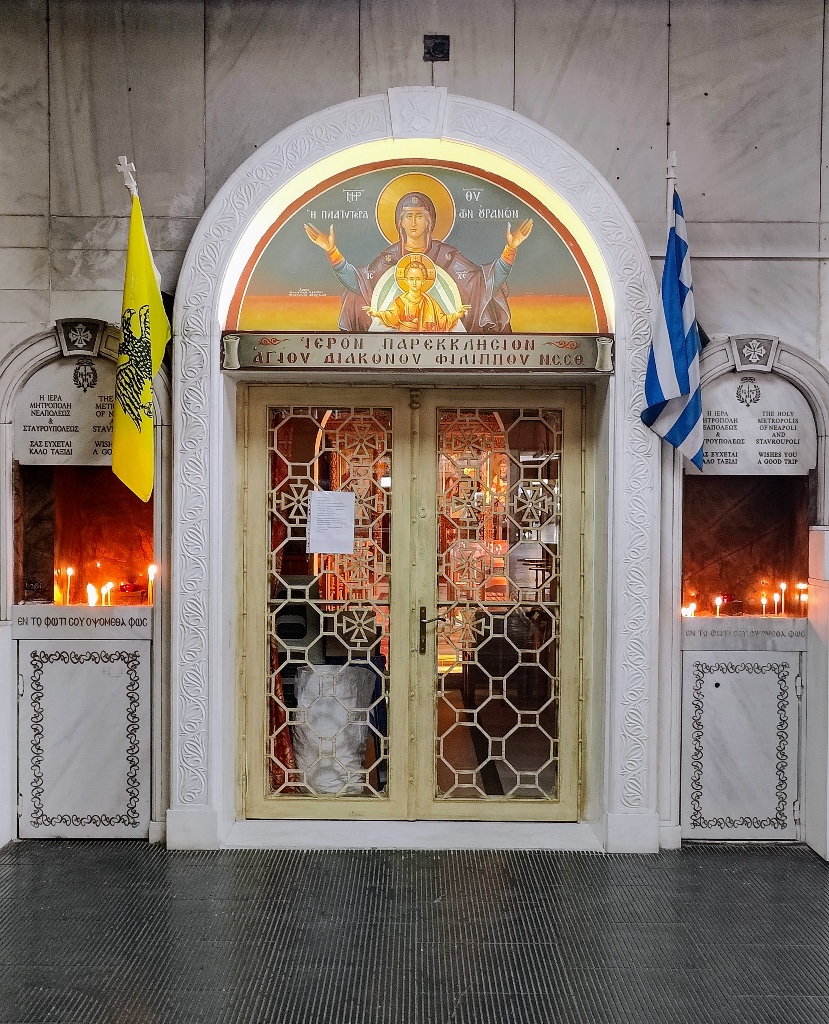
The morning of departure we took a quick cab ride to the central train station in Thessaloniki. We were surprised to find a small Greek Orthodox Church inside. We will miss seeing the beautiful architecture of these houses of worship, they are all a sight to behold. There is only one way to get to Bitola from Thessaloniki; first a three hour train ride to Edessa, then an hour bus ride to Florina (ticket price was included in our train ticket 18€), then a cab ride across the border to Bitola (45€). We felt lucky to have caught a cab in Florina as there were only two up for grabs. The bus drops you in a gravel parking lot next to the center of town. Our cab driver makes this trip frequently, as it is the only way to get across the border. The border crossing went smoothly, as did the check in at our eclectic apartment once we arrived. Our temporary home is spacious and comfy, the decor transports you to the 80s with its shiny black glass tables and red accent furniture.
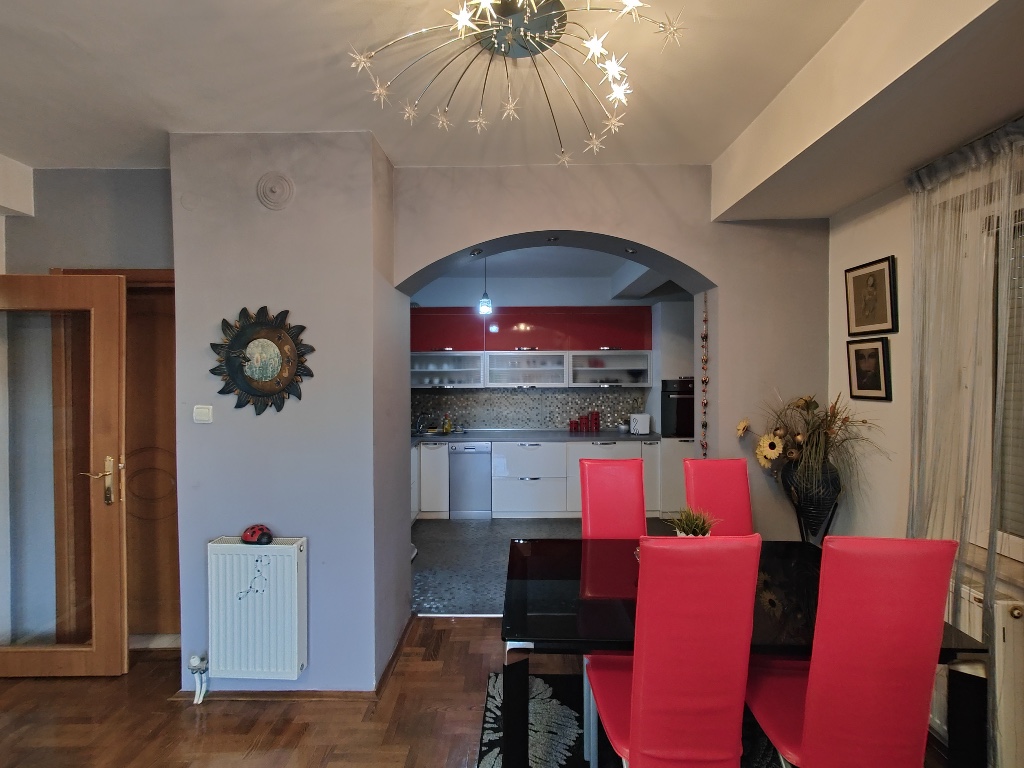
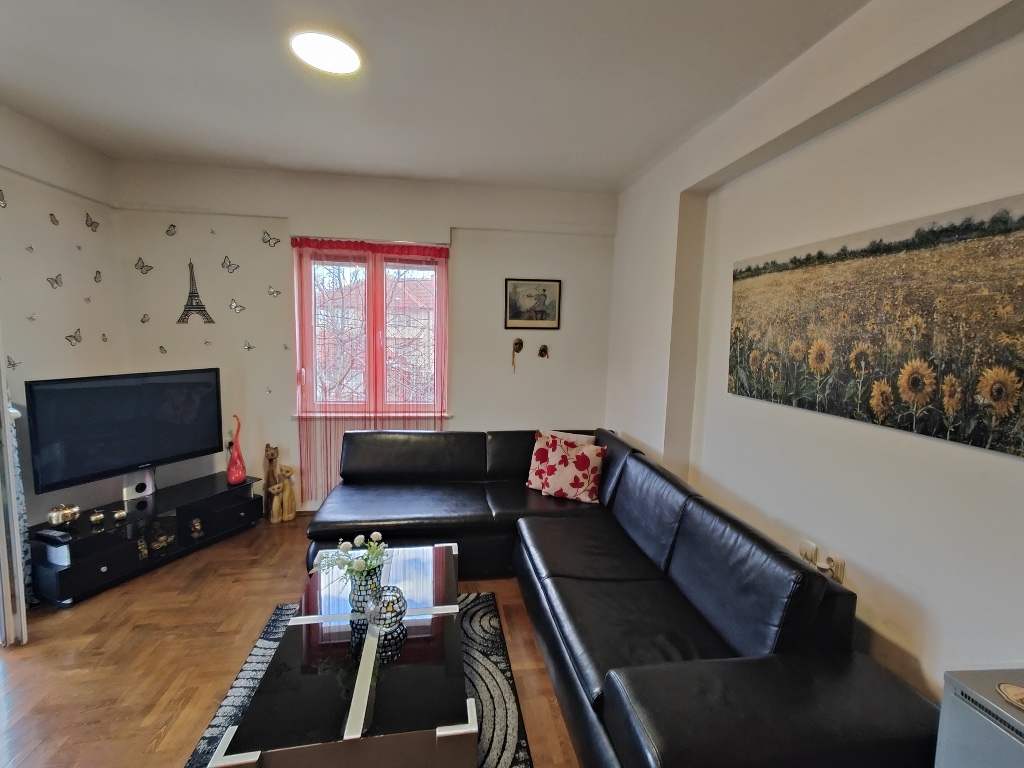
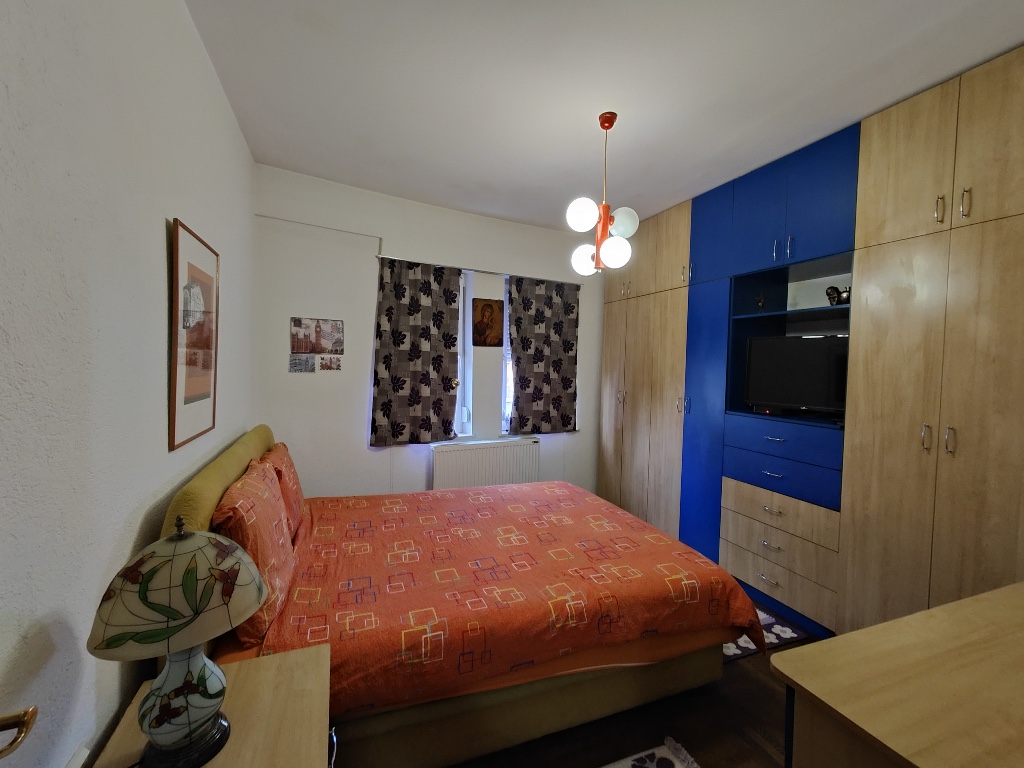
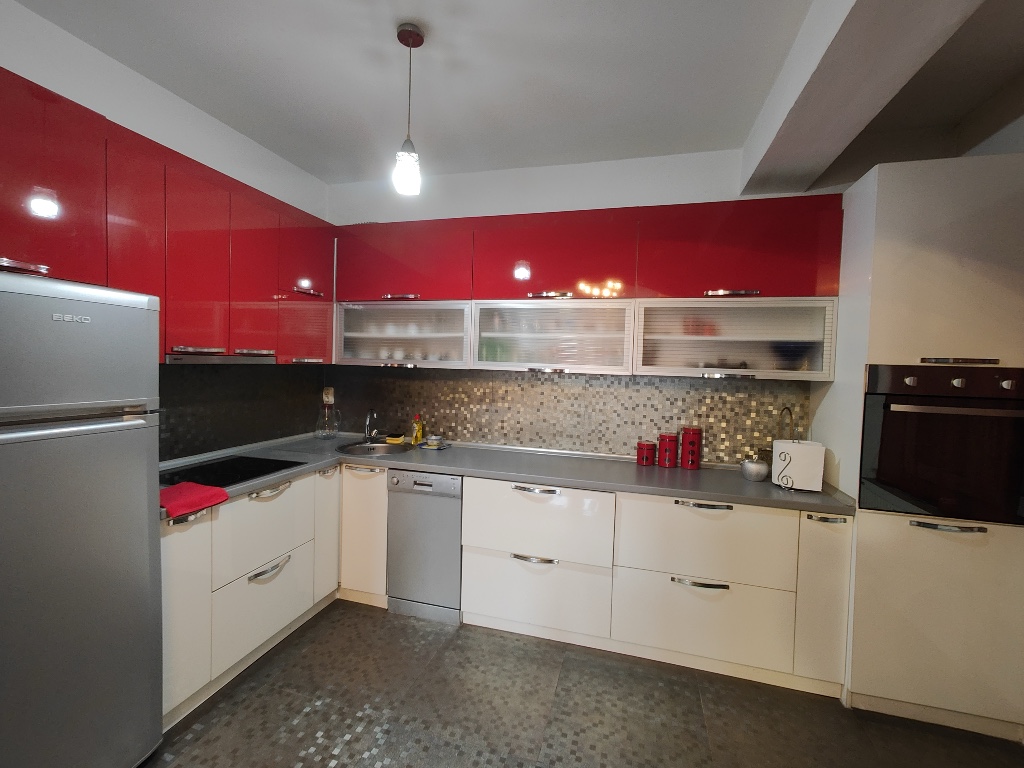
Since we arrived in the afternoon it was time to go check out what the city has to offer. There is a sidewalk from our apartment along the Dragor River all the way through town. We veered off the river into Magnolia Square, located next to the Clock Tower. Surrounding the square the old houses from early Macedonia and the Ottoman period have been converted to shops and cafes. No one knows exactly when The Clock Tower was built, some speculate that is was erected around the time St. Dimitrija Church was built in 1830. A legend from the Ottoman period is they collected 60,000 eggs from neighboring villages to mix with the mortar to fortify the walls. The original clock was replaced in WWII with a working one as a gift from the Nazis for the maintenance of German graves from fallen soldiers in WWI.
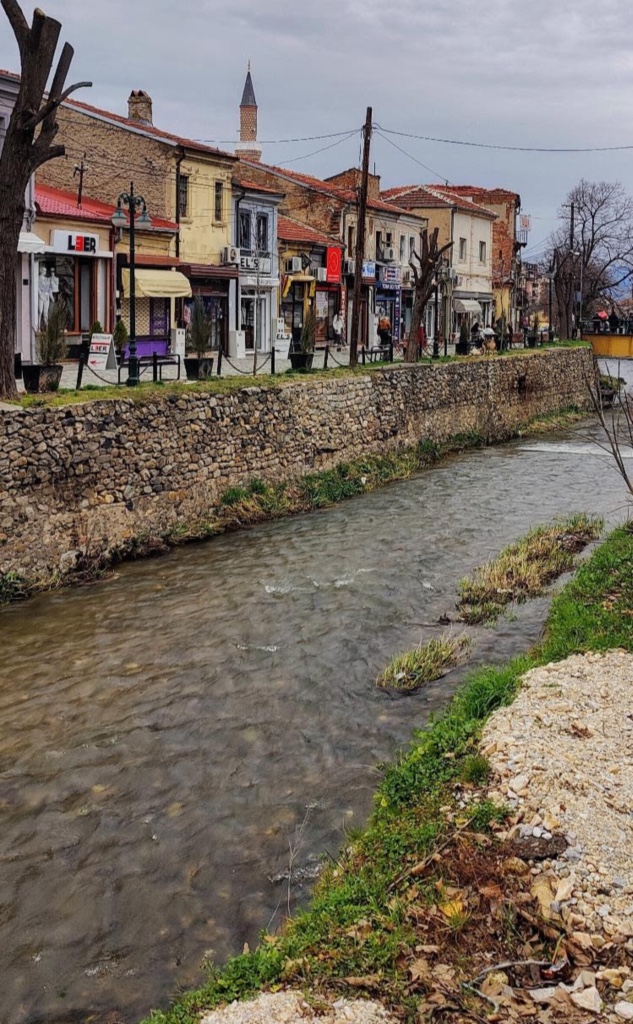
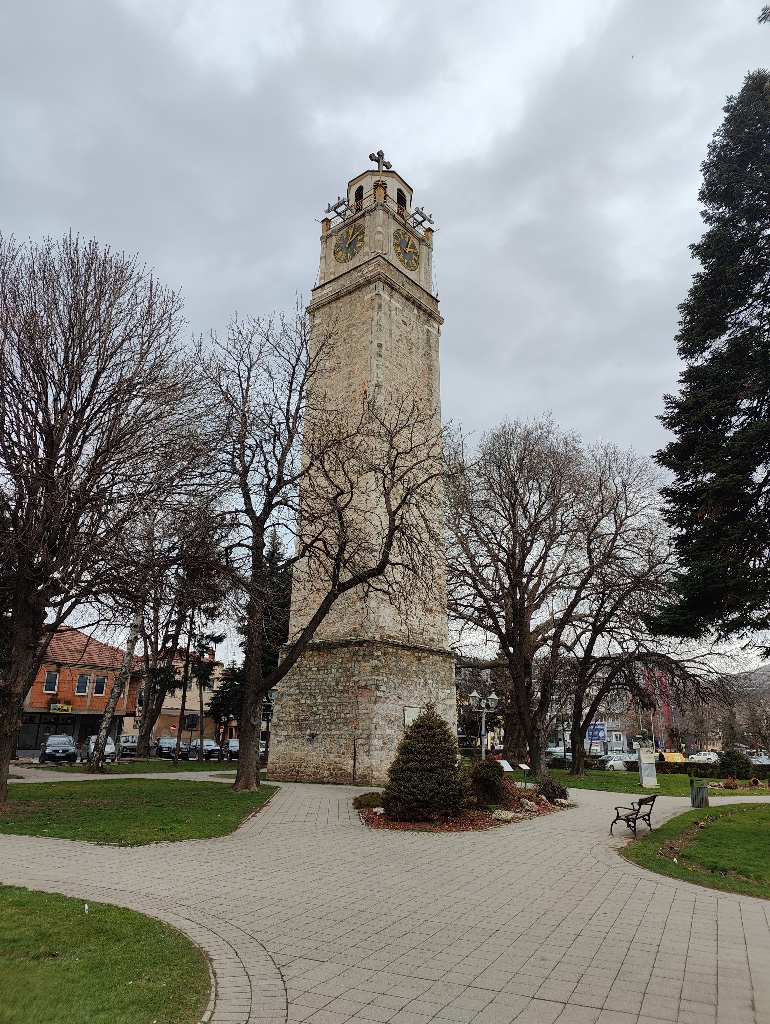
Needing some food after not eating all day we stumbled upon Pub Bourbon St. Immediately upon entering we were greeted with Rick Astley’s “Never Gonna Give You Up”, so we knew it was the place for us. Eighties music blasted throughout our meal, both the good and bad, but the nostalgic feel was welcome after spending our day on the road. Wanting to sample the best of the local beer scene we chose Bak, a smooth stout made in Bitola by two brothers; one a dentist and the other professional musician. It is one of the best dark beers I have had, it is always good to have something other than a lager or pilsner. They offer the usual pub fare, lots of meat and potatoes, some pide, Greek and Macedonian salads. Most salads here are green free, The Macedonian salad is red pepper, tomato, garlic, onion and parsley drizzled with olive oil. We thought a snack tray would be good, having a little bit of everything… of course it was huge! A good thing that it was our only meal that day.
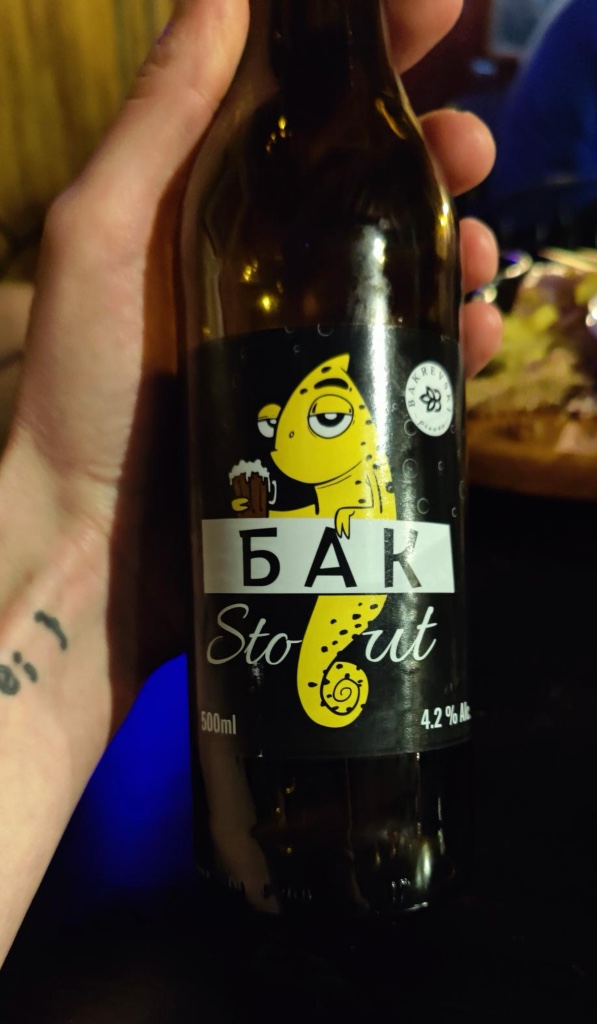
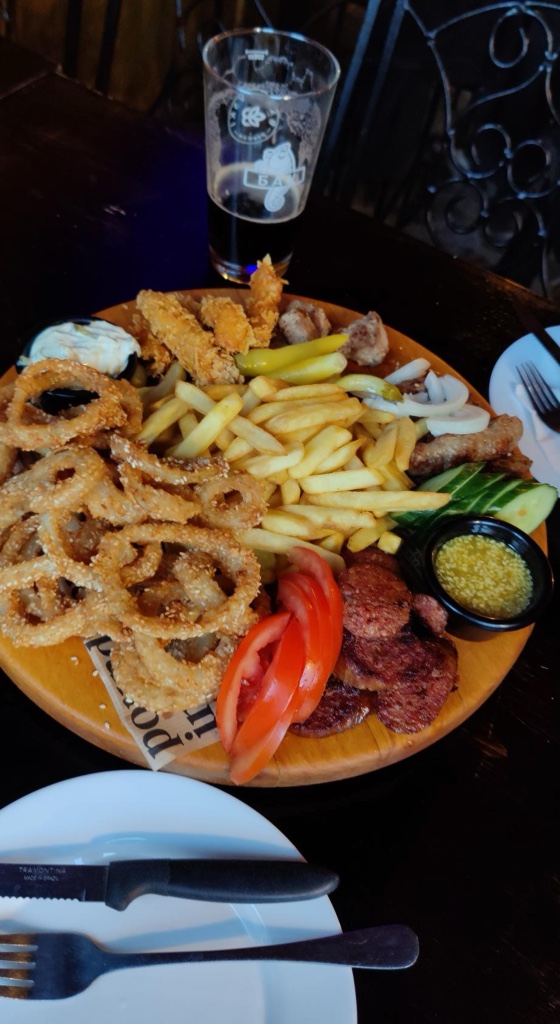
The next day we had to load up on fruit and vegetables so we decided to visit the Bazaar, an enormous 15th century covered bedisten from the Ottoman period. It is one of the largest and oldest covered markets in the region. You can find anything you need in the Bazaar, fresh fruits and vegetables, tea, herbs, olives and oil, local cheeses, accessories, clothing and housewares. There is a definite language barrier, but the vendors will make sure you get what you are looking for. We carried home and enormous sack of produce, olives, oil, and local feta for approximately 15€. I would definitely recommend a walkthrough once before making your purchases, there are multiple vendors of every type, some have better products and some better prices, some a combo of the two. A special shout out to the lovely olive vendor, we bought a liter of oil and a half kilo of delicious olives for 400 denar (6.5€).
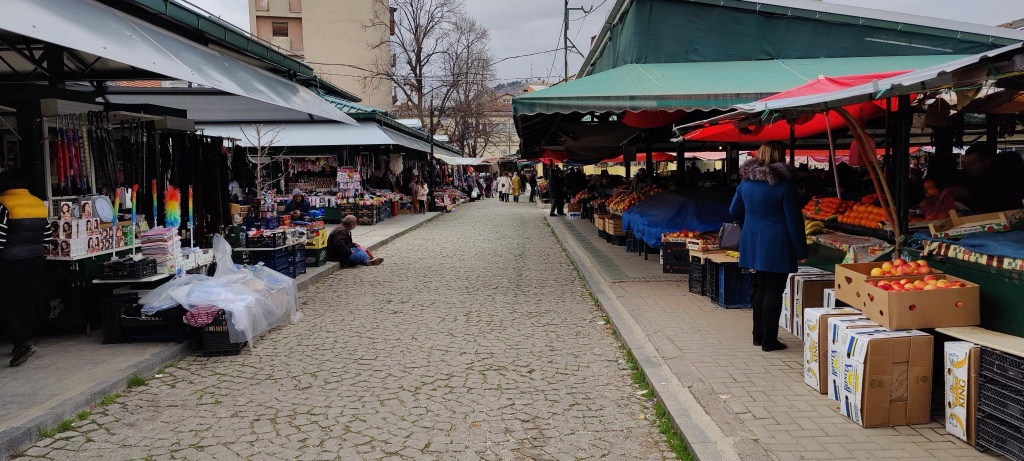
On the weekends families are out strolling and shopping, friends are sipping coffee and catching up with each other regardless of weather. It is still cool here in February, the high being around 10c on average. It doesn’t stop everyone from sitting outside. Unlike Greece, they don’t have gas heaters, but no one seems to feel the cold with a hot cup of coffee or Turkish tea. If you are wanting a delicious cup of Turkish tea along with a thoughtfully prepared meal head to Vino bar Bure, right next to Magnolia Square. Be sure to have a Pide alongside one of their salads, their caprese is especially good, served with toasted mustard seeds. They offer local wines by the glass, and have some of the cheapest draft beer in town. The food and service are exceptional, this will be a definite repeat during our stay.
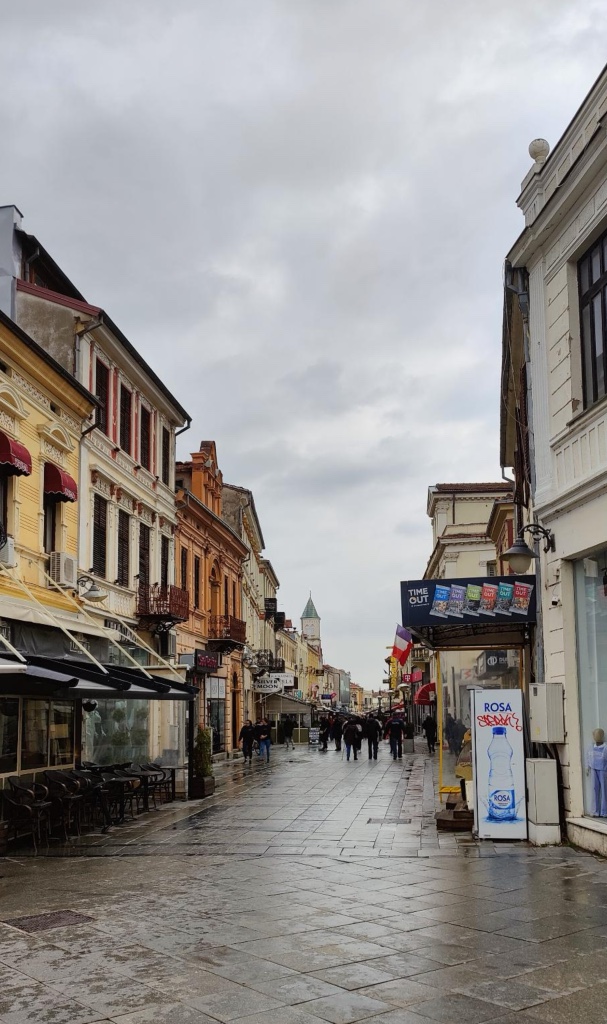
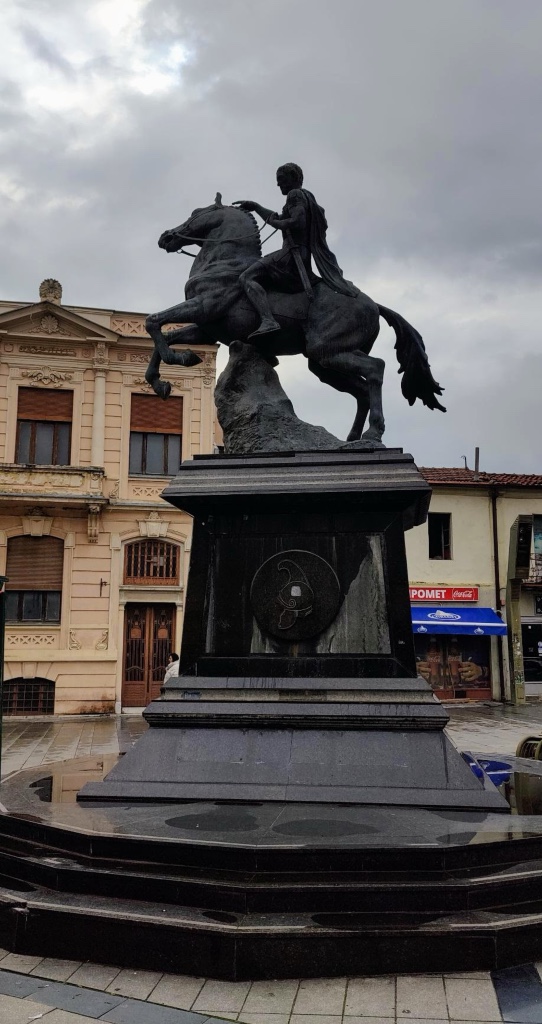
Bitola is an incredibly walkable town, the main streets speckled with boutiques and specialty shops. Shirok Sokak St. is packed during the weekends, but there is no shortage of places to sip your coffee or have a delicious meal. The main st. takes you alongside the largest green space in town, City Park. There is a row of street food where you can pick up a tost (ginormous grilled cheese), gyros, or ice cream, which people eat here anytime regardless of weather.
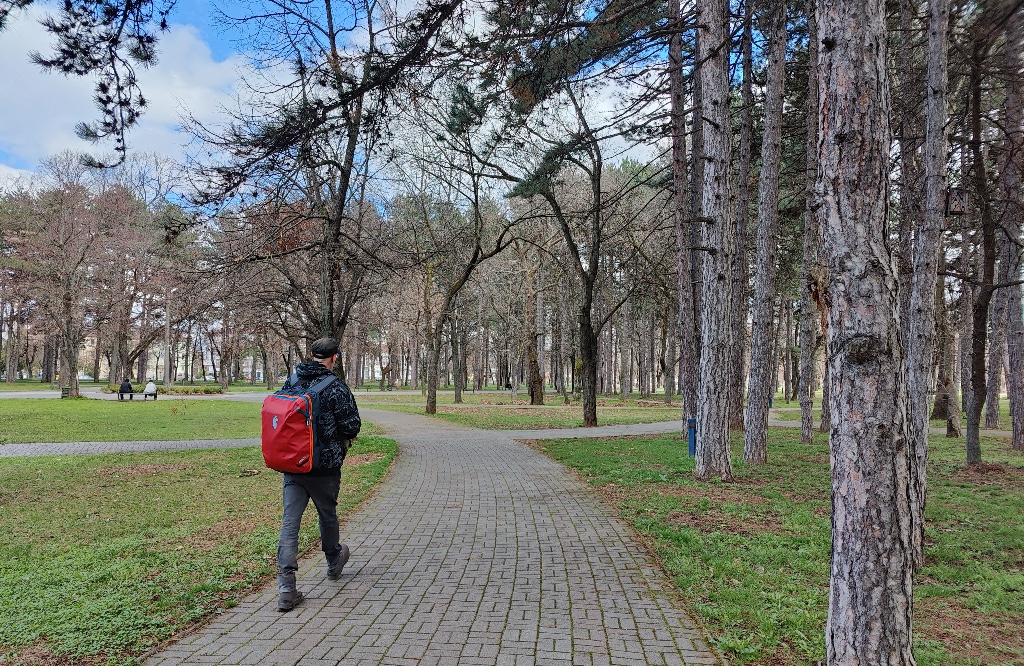
A 2km walk from town you can spend a day at Heraclea Lyncestis, an archaeological site founded in fourth century BC by Phillip of Macedon. Heraclea was conquered by the Romans during second century BC, destroying the political power of Macedonia. During this time the Romans left their mark on the site with the construction of Roman baths, a theatre, portico and other various buildings within the town. Later, Heraclea became an important center from Early Christianity in approximately 300 AD. A small and large basilica, Episcopal residence and Cemetery basilica were built outside the town walls during this time.

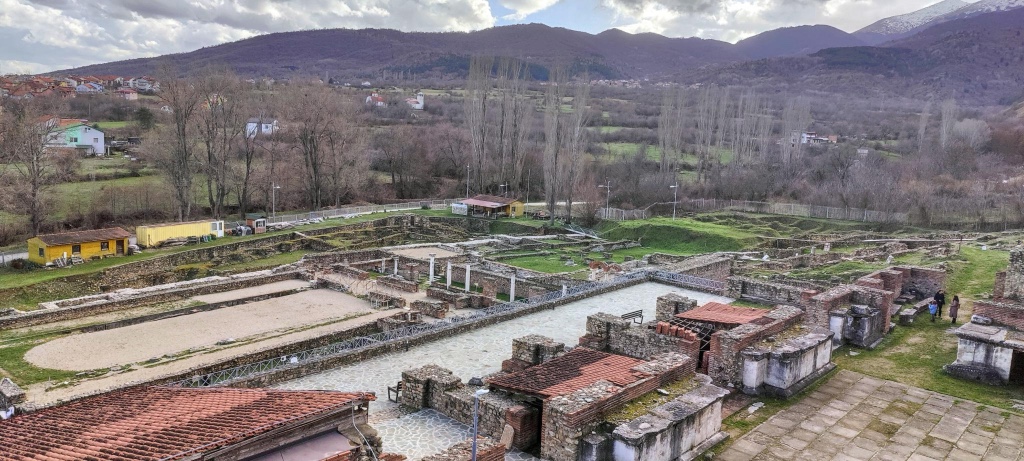
Inside the portico (or covered porch) lies the remnants of columns and postaments along with the headless statue of Nemesis, the goddess of fate and justice.
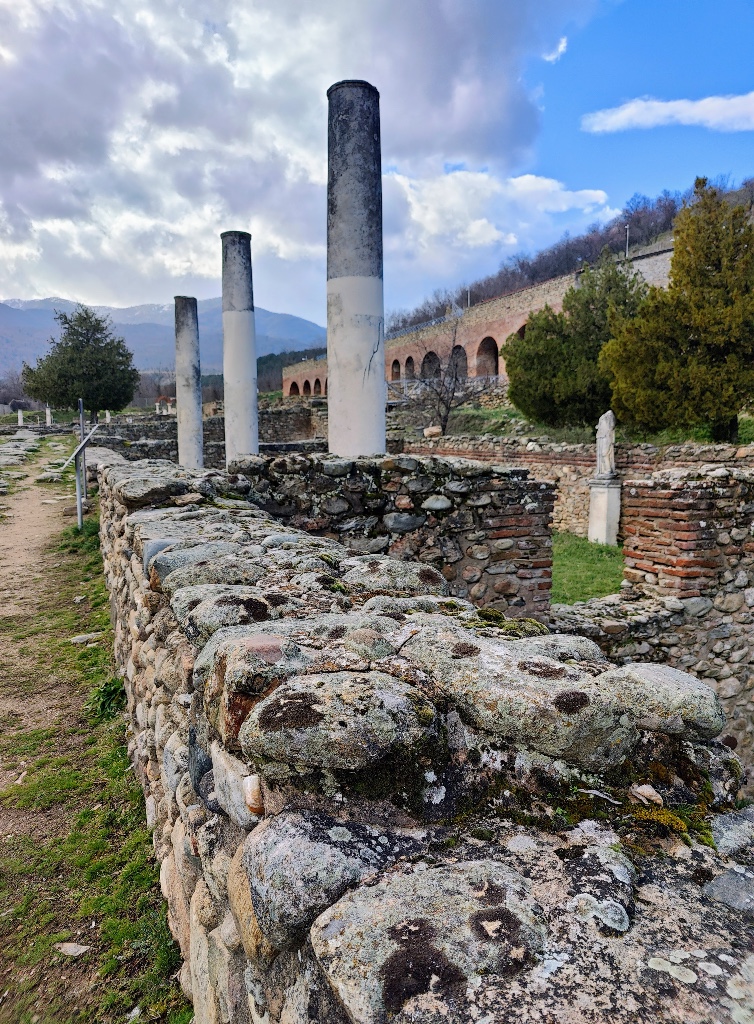
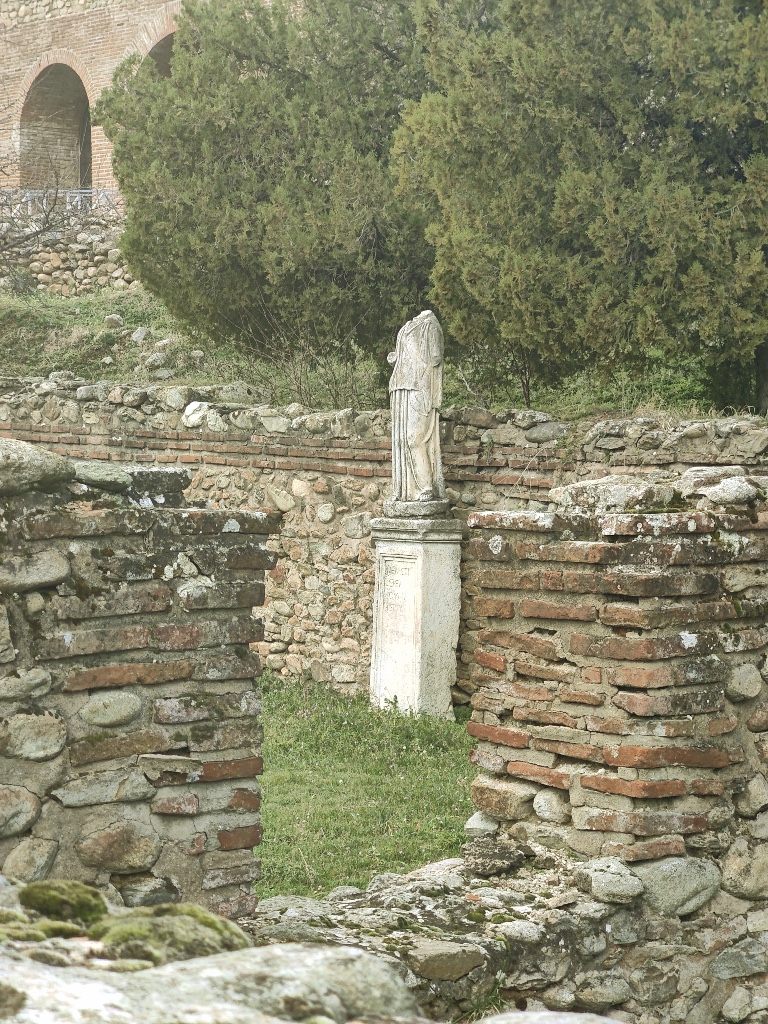
The Roman theatre was used for gladiator games and theatre performances. It is speculated that the theatre was built during the reign of Hadrian (117-138 AD). The horseshoe auditorium can seat and impressive 2,500 spectators. The first row of seats were reserved for representatives of the four municipalities, Asclepiades, Dionysius, Arthemisios, and Heracleis. The high walls and metal fence were used to protect viewers from irritable animals during the gladiatorial events. Three cages were discovered in this area. In times of early Christianity, believers were thrown to the beasts and torn apart for spectators. The gruesome practice of gladiator fights was banned in the 5th century, causing the theatre to decay due to erosion.
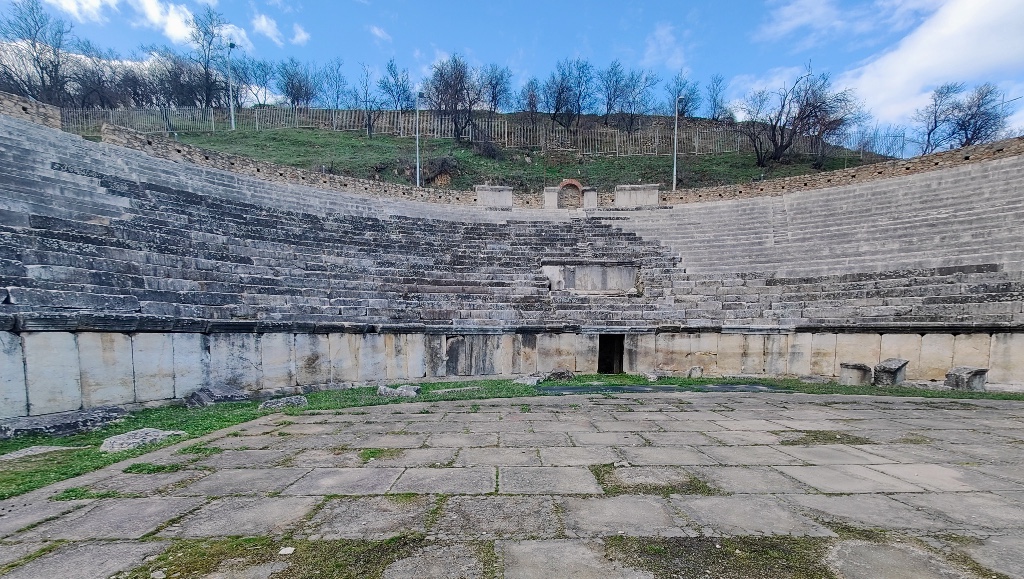
If you are looking to enjoy some live music, check out Porta Jazz… a cafe/bar that has an awesome band that plays classic rock and blues on the weekends. We stopped here for an after dinner drink one evening, saw the band setting up and decided to stay. The place was packed by the end of the night with people singing along to American classics and dancing with friends. They have an upstairs if you prefer balcony seating, otherwise be sure to reserve a table if you want to sit by the stage . Porta also has a nice walled patio for enjoying your coffee in the morning, the local dogs will keep you company.
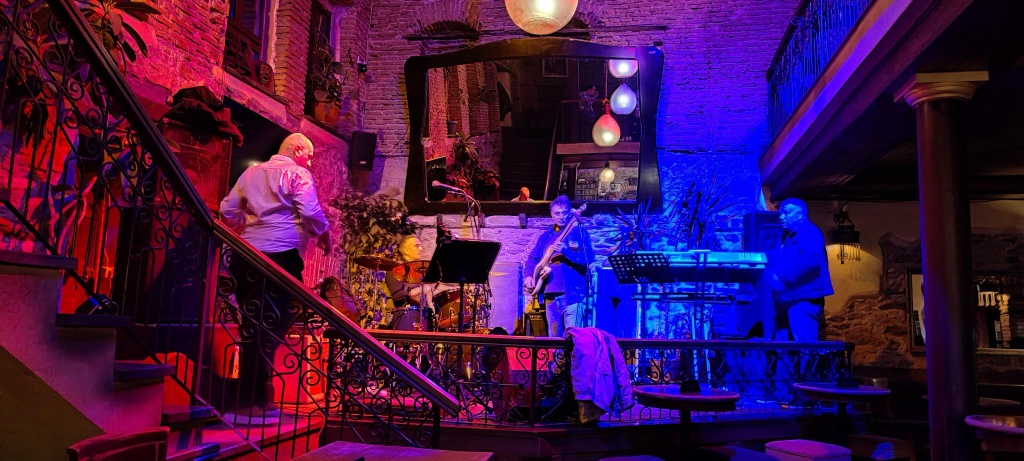
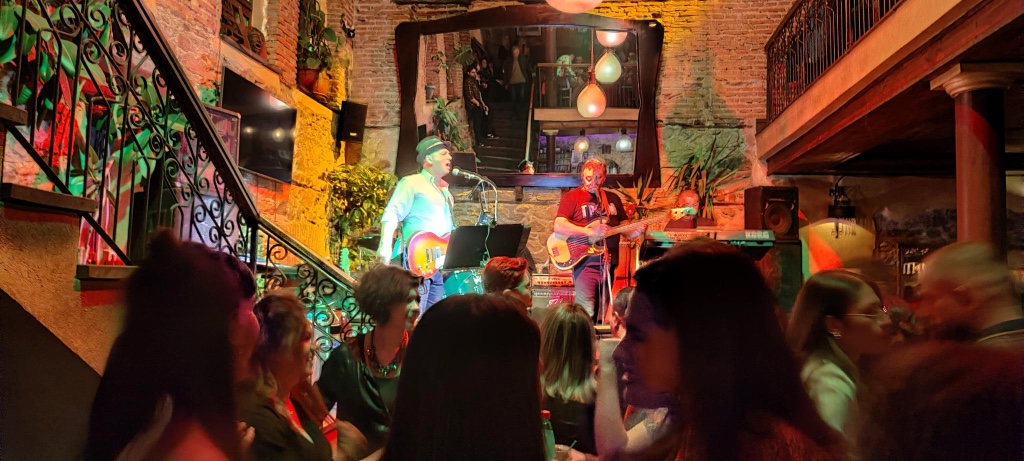
I have deeply enjoyed my time here. It is easy to feel at home in this quaint but lively town. I will miss the snow capped mountains, delicious bread from our local bakery, but most of all the lovely people that make up this place.
